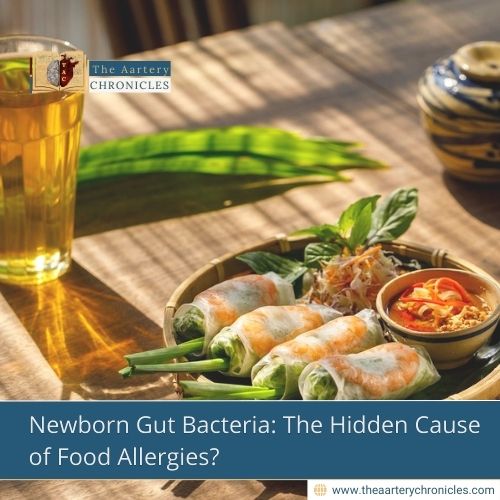

Newborn Gut Bacteria: The Hidden Cause of Food Allergies?
A recent Japanese study has shed light on how gut bacteria in newborns may influence their likelihood of developing food allergies. Conducted by researchers at the RIKEN Center for Integrative Medical Sciences, the study highlights the potential role of probiotics in preventing food allergies in infants at risk.
The Role of Gut Bacteria in Immunity
Gut bacteria play a crucial role in shaping the immune system soon after birth. They not only support healthy immune function but also offer protection against certain diseases. Understanding this connection can help in developing preventive strategies for food allergies in children.
Study Overview
The research spanned seven years and involved two groups of Japanese children. The first group comprised 270 children from families with a history of allergies, making them high-risk candidates. The second group included 245 children who were part of an earlier allergy treatment study.
Key Findings: Gut Bacteria and Food Allergies
The researchers examined specific immune system markers (IgE levels) in response to common food allergens such as milk, peanuts, egg whites, and wheat. The data was collected from the first year after birth until the children turned seven. By comparing gut microbiota data with these allergy markers, scientists discovered that gut bacteria present one month after birth had the strongest correlation with food sensitivities.
Factors Affecting Gut Microbiota
The study identified several factors that influence gut bacteria composition in newborns:
- Mode of Delivery: Babies born through normal vaginal delivery had different gut bacteria compared to those born via Cesarean section.
- Breastfeeding Levels: The extent of breastfeeding also played a role in shaping gut microbiota.
Microbiota Types and Their Impact
The study categorized gut bacteria into three main types:
- Type-3 (Bifidobacterium-dominant microbiome): Found in infants born naturally who had moderate breastfeeding. These infants showed the most balanced gut health.
- Type-1 Microbiota: Present in babies born naturally but who were breastfed at high levels.
- Type-2 Microbiota: More common in infants delivered via Cesarean section and who received less breastfeeding.
Conclusion
The study suggests that early-life gut bacteria may influence a child’s likelihood of developing food allergies. Additionally, probiotic interventions could potentially help in reducing allergy risks. Future research in this field may pave the way for targeted probiotic treatments to support immune development in newborns.
Source: Inputs from various media Sources

Priya Bairagi
Reviewed by Dr Aarti Nehra (MBBS, MMST)
I’m a pharmacist with a strong background in health sciences. I hold a BSc from Delhi University and a pharmacy degree from PDM University. I write articles and daily health news while interviewing doctors to bring you the latest insights. In my free time, you’ll find me at the gym or lost in a sci-fi novel.








